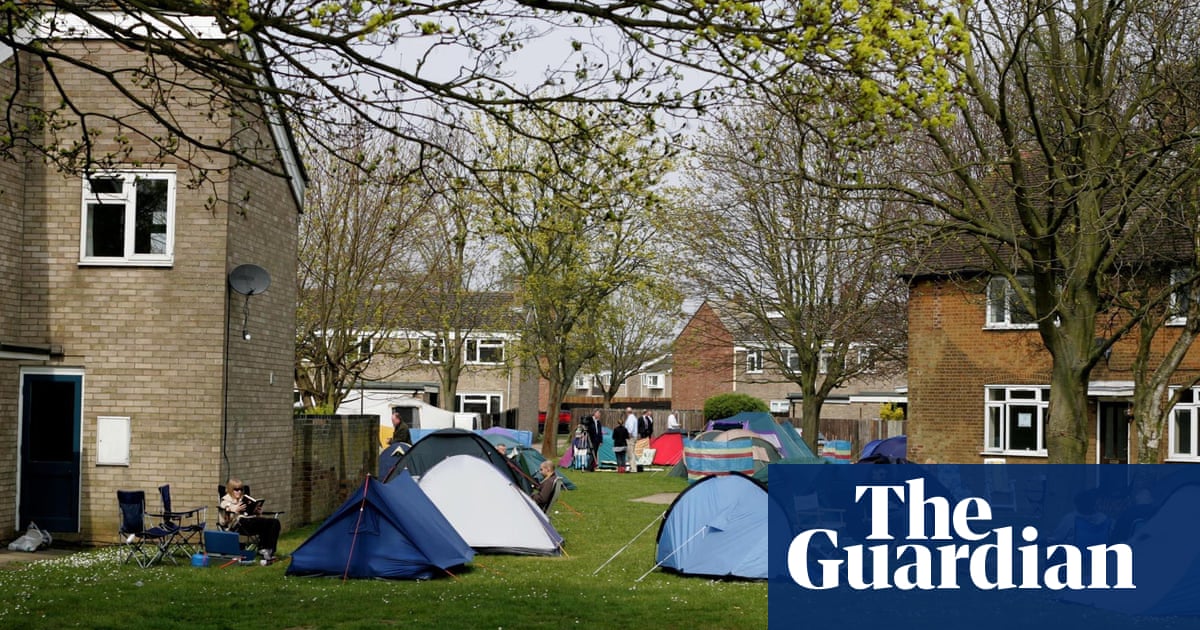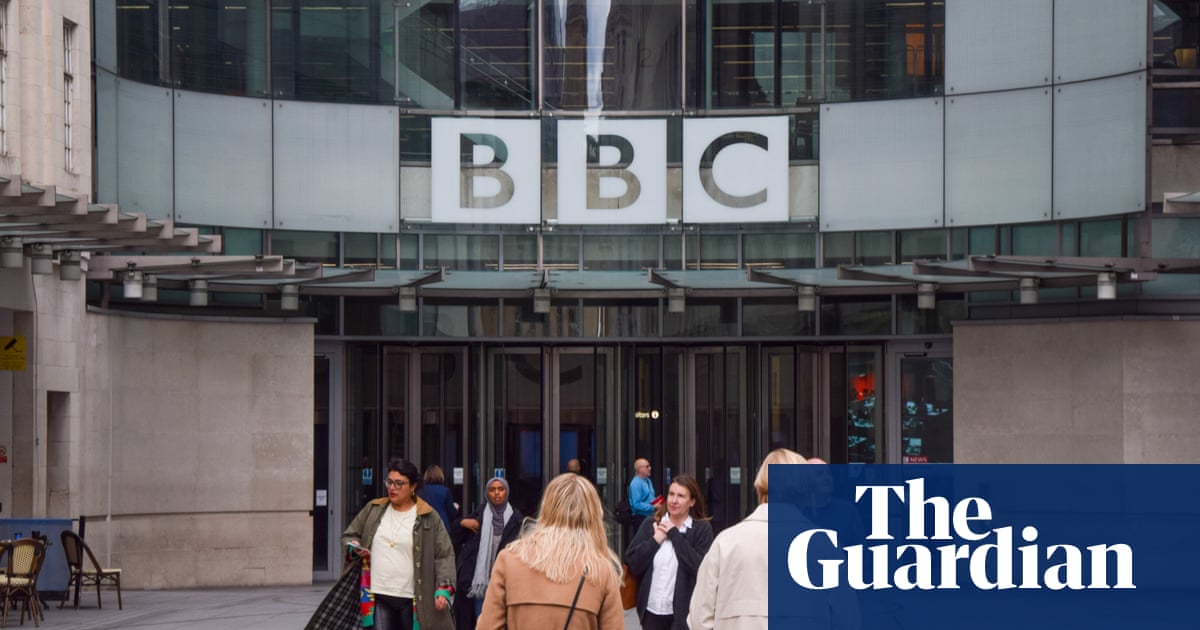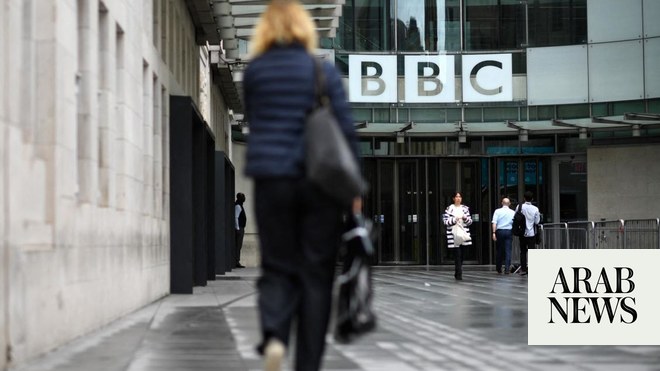
A property company accused of cramming homeless and low-income families into former office blocks has been funded by an investment group managed by the new chair of the BBC.
Richard Sharp was a senior member of RoundShield Partners, which advised and managed a fund that provided a £50m loan to Caridon over the last six years. Sharp resigned from RoundShield last week after the firm was approached by the Guardian.
The company said the move was “always intended” ahead of him taking up his position at the BBC on 15 February.
Caridon has converted office buildings into flats that, while legal, are below the government’s “space standard” and have been described by critics as “rabbit hutches”. It also acts as landlord, allocating apartments to tenants – many of whom rely on universal credit – and collecting their rent.
The conditions in some of Caridon’s converted blocks, which were fast-tracked under government planning changes, have been exposed by BBC journalists, with Panorama last year finding young families and people escaping domestic abuse living alongside former prisoners and people with drug issues.
BBC reporters also spoke to frightened young families living in cramped flats in one of Caridon’s conversions in Harlow, Essex.
Its business model has been described as “human warehousing”, with one prominent Conservative MP, Robert Halfon, accusing the company in 2019 of creating “modern ghettoes for the vulnerable” and calling for them to be closed down.
According to a Guardian analysis, the firm has collected more than £3.6m in universal credit housing payments from people living in its developments since April 2019.
Caridon said at the time that it took Panorama’s allegations seriously and did not tolerate criminal or antisocial behaviour. The accommodation complied with the law and was intended to be temporary but the length of stays was sometimes out of its control, it added.
Sharp joined RoundShield in 2014, a year before the deal with Caridon. He also chaired RoundShield’s investment board until April last year.
According to its website, RoundShield manages almost £2bn of capital, on behalf of pension funds, endowments and other investors.
Its Guernsey-based fund has invested in Caridon. While basing an investment fund in Guernsey is legal, the crown dependency is ranked as one of the least transparent financial markets in the world.
The BBC has played a pivotal role exposing the scale and scope of legal offshore tax avoidance in crown dependencies, through its partnerships in the Panama Papers and Paradise Papers investigations.
The Guardian’s disclosures put a spotlight on the BBC’s new chair as he begins a four-year posting that could determine the future of the corporation, and whether it will still be funded by the licence fee.
A former banker who counts the chancellor, Rishi Sunak, as a friend, and who advised Boris Johnson while he was London mayor, Sharp has donated more than £400,000 to the Conservative party over the last 20 years.
The £50m loan facility provided by a RoundShield fund in 2015 financed the conversion by Caridon of eight office blocks across south-east and south-west England, according to documents filed with Companies House. The conversions have generated large, reliable income streams from universal credit housing payments, which are claimed by low-income tenants, the Guardian has discovered.
According to figures obtained from freedom of information requests to the Department for Work and Pensions, Caridon’s tenants received £1.6m in universal credit payments in the last financial year to cover their rent – more than the tenants of any other landlord in the UK.
The latest figures suggest the Croydon-based company collected more than £2m in rental payments between April and August this financial year.
Some of the proceeds from these lending activities end up back in London, with Sharp’s former firm receiving £12m for managing its three investment funds in the last financial year. RoundShield Partners’ most recent accounts show that the then seven co-owners, including Sharp, shared £3.1m of profit. It is not known how much of that sum – if any – went to Sharp. He declined to comment.
Mark Ingall, the Labour leader of Harlow council, said Sharp and the Conservative party owed an apology to the people of Harlow and other towns affected by Caridon’s developments. “Appalling rabbit hutch developments have brought huge problems to Harlow and caused misery to the unfortunate individuals and families that were moved there from across the south-east,” he said.
The Guardian put a series of detailed questions to Sharp, the BBC and RoundShield. Sharp and the BBC declined to comment. RoundShield did not answer any of the specific questions about its financial arrangements. In a statement, it said Sharp had not been actively involved with its funds since April 2020.
“As always intended, he has formally resigned from RoundShield and is ceding his partnership interests ahead of becoming the non-executive chairman of the BBC,” it said.
The company said it was a construction lender with no involvement in the management of Caridon’s properties, which met all legal requirements.
“Caridon has provided temporary shelter through leases, block bookings and nomination agreements with councils and charities to more than 3,500 individuals who would have otherwise remained homeless,” it said.
Caridon said it was an “honest, hard-working and successful family business” that had helped house a large number of people referred by councils and the third sector. It said: “Many of our referrals have struggled to secure accommodation and were previously living in emergency shared or temporary accommodation, hostels or even street homeless and relying on night shelters.”
It said it recognised the challenges of having a high concentration of vulnerable people in one place, but added: “However, these are outweighed by the greater good of helping and housing individuals and families in need.”












